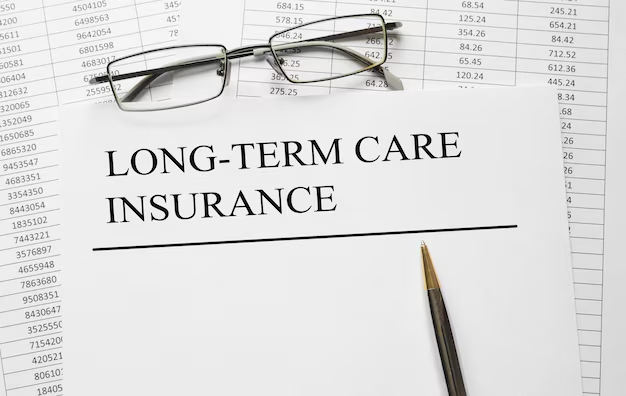Navigating Dual Coverage: Can You Have Both Medicaid and Private Insurance?
Understanding how health insurance works can sometimes feel like piecing together a puzzle. Many people wonder if it's possible to balance different coverage types. Take Medicaid and private insurance, for instance. Can they coexist, or do you have to choose one over the other? Here's a deep dive into what having both Medicaid and private insurance means, how it works, and the potential benefits and challenges it presents.
Understanding Medicaid and Private Insurance
What is Medicaid?
Medicaid is a public health insurance program in the United States designed to provide coverage for low-income individuals and families. It's funded jointly by federal and state governments but is managed at the state level, resulting in variations in coverage and eligibility from state to state. Medicaid covers a broad range of services, including hospital stays, outpatient care, long-term medical care, and more.
What is Private Insurance?
Private health insurance refers to a plan provided by private entities rather than the government. This form of coverage is often obtained through employer-sponsored plans, individual plans purchased directly from an insurer, or plans available through marketplace exchanges. Private insurance typically offers a wider choice of providers and services and may come with higher premiums compared to public programs like Medicaid.
Is It Possible to Have Both Medicaid and Private Insurance?
The short answer is yes, you can have both Medicaid and private health insurance. This is known as having "dual coverage" and is typically referred to as coordination of benefits. Here’s what that entails:
How Coordination of Benefits Works
When you have two health insurance plans, one becomes the primary payer, and the other, the secondary payer. In most cases, private insurance is deemed primary, and Medicaid serves as the secondary insurance. This means:
- Primary Insurance: This plan will pay first on your healthcare claims.
- Secondary Insurance (Medicaid): Medicaid will cover remaining costs, possibly filling in coverage gaps left by your primary insurance, such as co-pays or co-insurance.
Practical Benefits
Having dual coverage can be advantageous. Here’s how:
- Extended Coverage: Medicaid can supplement coverage where private insurance leaves gaps.
- Reduced Out-of-Pocket Costs: Medicaid may cover deductibles, out-of-pocket expenses, and co-insurance that would otherwise come out of your pocket.
- Access to More Services: Some services not covered or partially covered by private insurance may be fully covered under Medicaid.
Who Can Benefit from Dual Coverage?
Not everyone qualifies for dual coverage, but certain groups can find significant benefits from it:
The Financially Strapped
Individuals and families who find it challenging to cover healthcare costs fully through private insurance due to high deductibles or copayments might qualify for Medicaid, thus benefiting from reduced out-of-pocket expenses.
Those with Extensive Healthcare Needs
Individuals with chronic conditions or extensive healthcare requirements may benefit significantly from dual coverage, as Medicaid can help manage the additional costs.
Families with Children
Families can often benefit when only children are eligible for Medicaid while parents have private insurance. This ensures comprehensive family coverage and better cost management.
Potential Challenges of Dual Coverage
While having both Medicaid and private insurance can offer many benefits, there are also challenges to consider:
Complexity in Management
Managing two healthcare plans can be cumbersome. Understanding which services are covered by which plan, coordinating benefits, and dealing with multiple bill payers complicates the administrative side of healthcare.
Eligibility Dynamics
Eligibility for Medicaid varies by state and often requires re-certification. Changes in income, family size, or other circumstances might affect ongoing eligibility for Medicaid, leading to potential shifts in coverage.
Provider Acceptance
Not all healthcare providers accept both Medicaid and private insurance. It's essential to verify with healthcare providers if they are willing to coordinate benefits and accept both forms of coverage.
Steps to Manage Dual Coverage Effectively
Navigating dual coverage successfully involves a few strategic steps:
1. Stay Informed
Keep up to date with your state’s Medicaid eligibility requirements and ensure you understand the terms of your private insurance plan. Regularly review your coverage to avoid any unexpected changes.
2. Communicate with Providers
Discuss with your healthcare providers how both plans can be coordinated for billing to prevent denied claims and ensure a smooth process.
3. Organize Documentation
Maintain organized records of all insurance documents, claims, benefits statements, and communications with insurance companies to track what's covered and by whom.
4. Plan for Re-assessment
Since Medicaid eligibility requires regular re-certification, prepare financially and administratively for these evaluations to maintain continuous coverage.
A Snapshot of Key Considerations 📝
Here's a quick summary to help you stay organized and informed:
- Dual Coverage is Possible: You can have both Medicaid and private insurance.
- Coordination of Benefits: Private insurance is primary; Medicaid is secondary.
- Reduced Costs: Dual coverage can lower out-of-pocket expenses.
- Eligibility Requires Attention: Stay informed of state-specific Medicaid requirements.
- Provider Coordination is Key: Verify that providers accept both forms of insurance.
- Organization is Essential: Keep meticulous records and documentations for clarity.
While juggling both Medicaid and private insurance can appear complex, understanding how to effectively manage dual coverage can lead to a more comprehensive and financially sustainable healthcare experience. By staying informed, proactive, and organized, individuals can leverage the benefits of dual coverage and navigate the healthcare landscape with confidence.

Related Topics
- A/r Medicaid
- Am I Eligible For Medicaid
- Am I Qualified For Medicaid
- Are Illegal Aliens Eligible For Medicaid
- Are Illegal Immigrants Eligible For Medicaid
- Are Medicaid Payments Frozen
- Are Medicare And Medicaid Social Insurance
- Are My Children Eligible For Medicaid
- Are Trusts Exempted From Ssi And Medicaid
- Are Undocumented Immigrants Eligible For Medicaid
